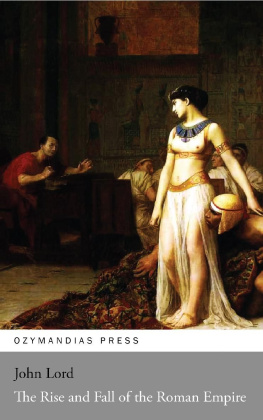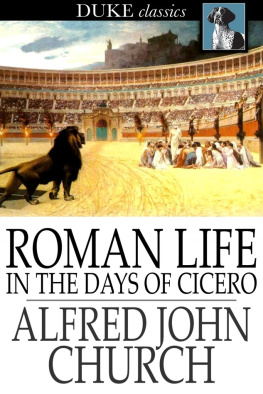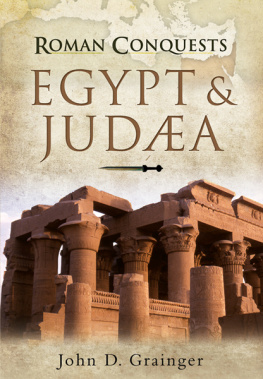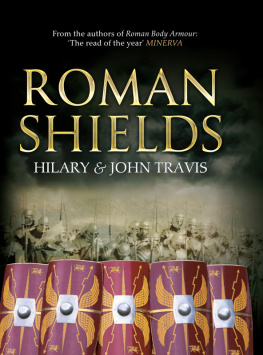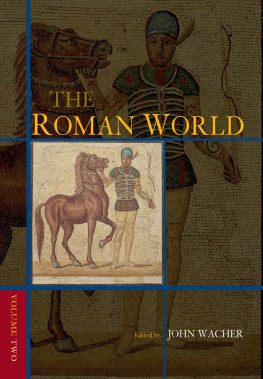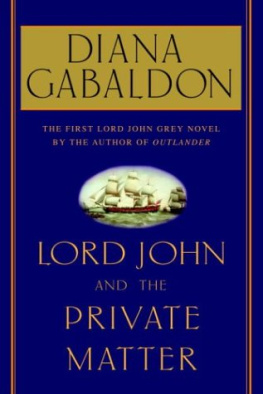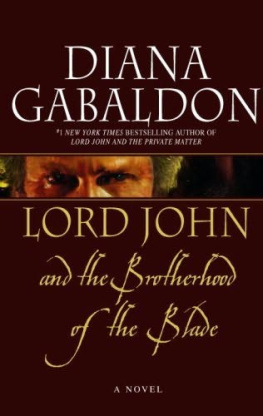John Lord - The Old Roman World
Here you can read online John Lord - The Old Roman World full text of the book (entire story) in english for free. Download pdf and epub, get meaning, cover and reviews about this ebook. year: 2001, publisher: University of Michigan Press, genre: History. Description of the work, (preface) as well as reviews are available. Best literature library LitArk.com created for fans of good reading and offers a wide selection of genres:
Romance novel
Science fiction
Adventure
Detective
Science
History
Home and family
Prose
Art
Politics
Computer
Non-fiction
Religion
Business
Children
Humor
Choose a favorite category and find really read worthwhile books. Enjoy immersion in the world of imagination, feel the emotions of the characters or learn something new for yourself, make an fascinating discovery.

The Old Roman World: summary, description and annotation
We offer to read an annotation, description, summary or preface (depends on what the author of the book "The Old Roman World" wrote himself). If you haven't found the necessary information about the book — write in the comments, we will try to find it.
The Old Roman World — read online for free the complete book (whole text) full work
Below is the text of the book, divided by pages. System saving the place of the last page read, allows you to conveniently read the book "The Old Roman World" online for free, without having to search again every time where you left off. Put a bookmark, and you can go to the page where you finished reading at any time.
Font size:
Interval:
Bookmark:

Subjection of ItalyGreat Heroes of the RepublicTheir Virtues and
VictoriesMilitary AggrandizementThe Carthaginian, Macedonian, and
Asiatic WarsTheir ConsequencesCivil Wars of Marius and Sulla, of
Pompey and CaesarThe Conquests of the BarbariansExtension of Roman
Dominion in the EastConquests of the EmperorsThe Military Forces of
the EmpireMilitary ScienceThe Roman LegionThe Military Genius of
the Romans
Mediterranean and its IslandsThe ProvincesPrincipal CitiesGreat
Architectural MonumentsRoadsCommerceAgricultureManufactures
WealthPopulationUnity of the Empire
Architectural MonumentsA Description of the Temples, Bridges,
Aqueducts, Forums, Basilicas, Palaces, Amphitheatres, Theatres,
Circuses, Columns, Arches, Baths, Obelisks, TombsMiscellaneous
AntiquitiesStreetsGardensPrivate HousesPopulous Quarters
Famous Statues and PicturesGeneral MagnificencePopulation
Famous Artists of AntiquityHow far the Romans copied the GreeksHow
far they extended ArtIts PrinciplesIts PerfectionCauses of its
DeclinePermanence of its grand Creations
CenturiataComitia TributaThe PlebsGreat Patrician FamiliesThe
Aristocratic Structure of ancient Roman SocietyThe Dignity and Power
of the SenateThe KnightsThe Growth of the DemocracyContests
between Patricians and PlebeiansRise of TribunesPopular Leaders
Their LawsThe Great Officers of StateProvincial Governors
Usurpations of fortunate GeneralsThe Revolution under Julius Caesar and
AugustusImperial DespotismPreservation of the Forms of the
Republic, and utter Prostration of its Spirit
JurisprudenceLegislative SourcesJudicial PowerCourts of LawThe
Profession of LawGreat Lawyers and JuristsAncient CodesImperial
CodesThe Law of PersonsRights of Citizens, of Foreigners, of Slaves
Laws of Marriage, of Divorce, of AdoptionPaternal Power
GuardianshipLaws relating to Real RightsLaw of ObligationsLaws of
SuccessionTestaments and LegaciesActions and Procedure in Civil
SuitsCriminal Law
Development of the Latin LanguageThe Orators, Poets, Dramatists,
Satirists, Historians, and their chief WorksHow far Literature was
cultivatedSchoolsLibrariesLiterary Legacies of the Romans
DiscoveriesExtent of Astronomical KnowledgeThe Alexandrian School
The Science of Geometry and how far carriedGreat NamesMedicine
GeographyOther Physical Sciences and their limited Triumphs
Disproportionate FortunesThe Wealth and Corruption of Nobles
Degradation of the PeopleVast Extent of SlaveryThe Condition of
WomenDemoralizing Games and SpectaclesExcessive Luxury and squalid
MiseryMoney-makingImperial MisruleUniversal Egotism and
Insensibility to grand SentimentsHopelessness of ReformPreparation
for Ruin
Font size:
Interval:
Bookmark:
Similar books «The Old Roman World»
Look at similar books to The Old Roman World. We have selected literature similar in name and meaning in the hope of providing readers with more options to find new, interesting, not yet read works.
Discussion, reviews of the book The Old Roman World and just readers' own opinions. Leave your comments, write what you think about the work, its meaning or the main characters. Specify what exactly you liked and what you didn't like, and why you think so.

